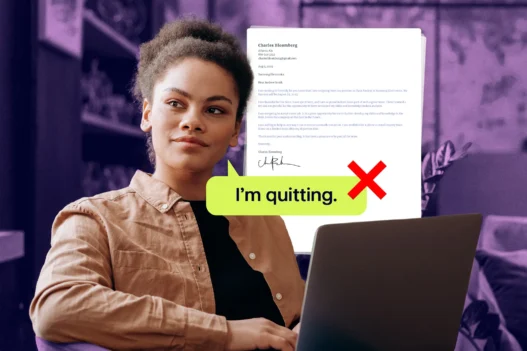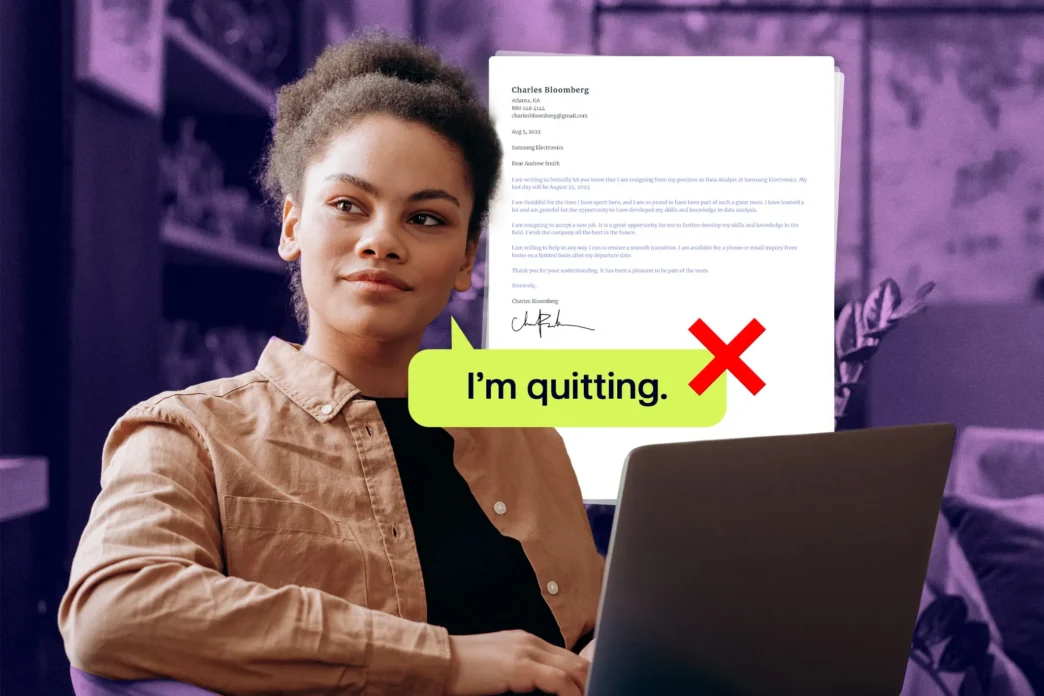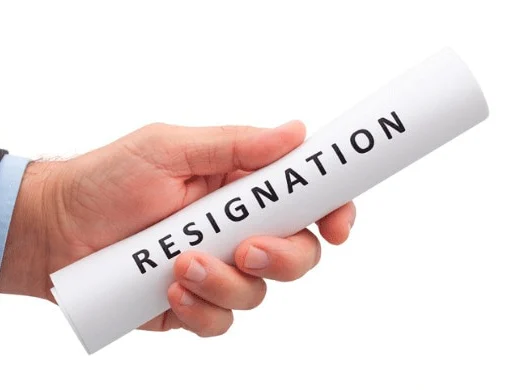Leaving a job is a significant career milestone, and how you communicate your resignation can leave a lasting impression on your employer. Whether you’re moving to a new role, pursuing further education, or dealing with personal circumstances, a well-crafted resignation email is essential for maintaining professionalism and positive relationships.
In this guide, we’ll walk you through how to write a resignation email, when to send one, and provide ready-to-use templates and examples for various scenarios. Let’s ensure your exit is smooth, respectful, and professional.
What Is a Resignation Email?
A resignation email is a formal message that notifies your employer of your decision to leave the company. It serves as an official record of your resignation and typically includes:
- Your last working day.
- A brief reason for leaving (optional).
- A note of gratitude for the opportunity.
- An offer to assist with the transition.
While it’s common to inform your manager verbally before sending a resignation email, the email itself ensures clarity and documentation for HR and payroll purposes.
When to Send a Resignation Email
There are several situations where sending a resignation email is the best or only option:
- Remote Work: When face-to-face communication isn’t possible.
- Urgent Circumstances: If you need to resign immediately due to personal or medical reasons.
- Formal Documentation: To provide a written record of your resignation.
Regardless of the situation, a resignation email should always be professional and respectful.
How to Write a Resignation Email: 5 Simple Steps
Follow these steps to craft a clear and professional resignation email:
1. Write a Clear Subject Line
Your subject line should be direct and professional. Examples include:
- Resignation Notice – [Your Name]
- Notice of Resignation – [Your Name]
- Immediate Resignation – [Your Name]
2. Address Your Manager
Begin your email with a formal salutation, such as:
Dear [Manager’s Name],
3. State Your Intention to Resign
Clearly state that you are resigning and include your last working day. For example:
“Please accept this email as formal notice of my resignation from my position as [Job Title], effective [Last Working Day].”
4. Express Gratitude
Thank your employer for the opportunity and highlight positive experiences. For example:
“I am grateful for the support and guidance I’ve received during my time at [Company Name]. I’ve learned a great deal and truly appreciate the opportunities I’ve had here.”
5. Offer to Assist with the Transition
Show your professionalism by offering to help during the transition. For example:
“During my notice period, I am happy to assist with training my replacement or completing pending projects to ensure a smooth transition.”
6. Close Professionally
End your email with a polite closing, such as:
Sincerely,
[Your Full Name]
Tips for Writing a Resignation Email
Here are some additional tips to ensure your resignation email is effective:
- Keep It Short and Professional: Avoid unnecessary details or emotional language.
- Use a Positive Tone: Focus on gratitude and maintaining a good relationship.
- Proofread: Double-check for spelling and grammar errors.
- CC HR: Copy the HR department to ensure proper documentation.
- Provide Contact Information: Share your personal email or phone number for future communication.
Resignation Email Templates
Template 1: Standard Resignation Email
Subject Line: Resignation Notice – [Your Name]
Dear [Manager’s Name],
Please accept this email as formal notice of my resignation from my position as [Job Title] at [Company Name], effective [Last Working Day].
I am truly grateful for the opportunities I’ve had at [Company Name] and the support I’ve received from you and the team. During my time here, I’ve developed valuable skills and formed lasting relationships that I will carry with me throughout my career.
During my notice period, I am happy to assist with [specific tasks, e.g., “training my replacement” or “completing pending projects”] to ensure a smooth transition. Please let me know how I can be of help.
Thank you again for the opportunity to be part of [Company Name]. I wish you and the team continued success in the future.
Sincerely,
[Your Full Name]
Template 2: Resignation Email Due to Personal Reasons
Subject Line: Resignation – [Your Name]
Dear [Manager’s Name],
I am writing to inform you of my resignation from my position as [Job Title] at [Company Name], effective [Last Working Day]. This decision was not an easy one, but it is necessary due to personal reasons.
I am deeply grateful for the opportunities I’ve had at [Company Name] and the support I’ve received from you and the team. During my time here, I’ve learned a great deal and truly appreciate the experiences I’ve had.
During my notice period, I am happy to assist with [specific tasks] to ensure a smooth transition. Please let me know how I can be of help.
Thank you again for everything. I wish you and the team all the best in the future.
Sincerely,
[Your Full Name]
Template 3: Immediate Resignation Email
Subject Line: Immediate Resignation – [Your Name]
Dear [Manager’s Name],
It is with deep regret that I must resign from my position as [Job Title] at [Company Name], effective immediately. Due to unforeseen personal circumstances, I am unable to continue in my role.
I sincerely apologize for the inconvenience this may cause and am happy to assist with the transition process remotely, if needed. Please let me know how I can help during this time.
Thank you for the opportunity to work at [Company Name]. I am grateful for the support and guidance I’ve received and wish you and the team continued success.
Sincerely,
[Your Full Name]
Resignation Email Examples
Example 1: Resignation Due to Career Change
Subject Line: Resignation Notice – Sarah Johnson
Dear Mr. Smith,
Please accept this email as formal notice of my resignation from my position as Marketing Manager at ABC Company, effective [Last Working Day].
I have accepted a new opportunity that aligns with my long-term career goals. While I am excited about this next chapter, I am deeply grateful for the experiences and support I’ve received during my time at ABC Company.
During my notice period, I am happy to assist with training my replacement and completing pending projects to ensure a smooth transition. Please let me know how I can be of help.
Thank you again for the opportunity to be part of ABC Company. I wish you and the team continued success.
Sincerely,
Sarah Johnson
Example 2: Resignation Due to Medical Reasons
Subject Line: Resignation – Michael Brown
Dear Ms. Taylor,
I am writing to inform you of my resignation from my position as Sales Associate at XYZ Company, effective [Last Working Day]. Due to ongoing medical treatment, I am unable to continue in my role.
I am truly grateful for the opportunities I’ve had at XYZ Company and the support I’ve received from you and the team. During my time here, I’ve learned a great deal and formed lasting relationships.
During my notice period, I am happy to assist with the transition process. Please let me know how I can be of help.
Thank you again for everything. I wish you and the team all the best in the future.
Sincerely,
Michael Brown
Conclusion: Leave on a Positive Note
A well-written resignation email is your final opportunity to leave a positive impression on your employer. By following the steps and templates above, you can ensure your departure is professional, respectful, and seamless.
Ready to take the next step in your career? Use this guide to craft a resignation email that reflects your professionalism and sets you up for future success.
Call-to-Action:
Need more career advice? Check out our free resignation email templates and job search guides to help you navigate your next steps with confidence!





















